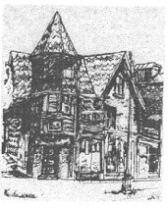INSIDE THIS ISSUE:
Lana Bella
Hongri Yuan
Lyn Lifshin
Duane Locke
Elisavietta Ritchie
Michelle Bailat-Jones
Fahredin Shehu
Laszlo Slomovits
Andy N
Alex Ferde
Lekan Alesh
Michael Lee Johnson
Running Cub
Ali Znaidi
Silvia Scheibli
Robert Nisbet
Richard Gartee
Amit Parmessur
Jennifer Burd
Paul B. Roth
Sanjeev Sethi
Keith Moul
Arjun Dahal
Alan Britt
Richard Lynch
Fred Wolven
Eddie Awusi
Joanie Freeman
Hongri Yuan
Amit Shankar Saha

Ann Arbor Review
is an independent
International Journal & ezine
Copyright (c) 2017
Francis Ferde
All rights revert back to each poet.
--editor / Southeastern Florida
------------------------------------------------
AAR history note: in print 1967 - 1980. Irregular publications 1980 - 2004. As ezine 2004 - present. Most of 48 years all together....
------------------------------------------------
staff:
Francis Ferde
Silver Grey Fox
Running Cub
Fred Wolven
Submissions via e-mail:

He seems to have been invented
for the sole purpose of becoming extinct
and that was all he was good for. ―
Will Cuppy
Each step up the staircase, each simple heartbeat
brings me closer to you, dearest dodo. Its feels
like Iíll see your face amidst fireworks cutting
diamonds on air and sending up imperious stars.
The only good I can do in this cityís emptiness
is to anticipate your squawk. Remember, when
the sun sets for a last time this year, weíll borrow
wings and fly into the night full of fast clouds
and falling fire. Strumming my guitar, Iíll watch
over your yellow feet, your green beak, your
curly feathers, with you preening in the top of
the wood, in the convenience of the high trees,
with our heads locked into the light of the stars.
But reaching the rooftop I meet only a ghost.
Surrendering myself to each memory of you, I
forego a nameless tear. I go down, nuts in hand,
seeds in pockets. I now wish to see you in my
room and fool the whole world, cracking jokes
with you, rolling on the ecstatic floor. But the
butterfly clock on the wall whispers to me
that youíve gone to sleep early today, somewhere
special, with the cats, the dogs and the monkeys.
WORDS TO A DEAD MOTHER
Because the love of a mother
starts before birth, her love will endure
long after death. ― Franchesca Cox
Itís not my fault at all that you wonít be here
to reap what youíve sown.
Iíll be more beautiful than youíd ever think
in front of the mirror.
Itís not my fault at all that you wonít be here
to see dadís ageing face and his love for you.
His creases would each lead to you.
Itís not my fault that you wonít be here
when I donít have the words and smile
to help my big sister.
Iím sure, she wonít be what you wanted.
Know that I was the one in charge of
your make-up when you lay inert on your bier.
I didnít know it was the last time Iíd do so.
Know that when you went away
I had confused tears and even smiled
a couple of times with my uncles and cousins.
You went to be burnt near the mountain
weíd all watch from our terrace.
Why did you take such a painful decision
to stop seeing your children?
Werenít we perfect little people,
people that shared your eyes
and their dadís nose?
Didnít we bring you enough joy?
Whatís bad these days is that your departure
has divided the family.
Grandmother, who was always so cruel with you,
has accused two aunts of witchcraft on you.
For a couple of months, dad grew
such a big moustache and morose beard
that we feared they would stop his mouth for ever.
Know that itís not my fault at all.
We know who the real villain is but cannot say
so. For now, you come to me in waves,
bathing me in relief, then uncertainty,
in elation, then nostalgia.
Then something I canít explain drowns me.
You are amazing, you are wonderful.
You are loved, dearest mother.
Iíll wait for you each time it rains.
DEAD DRAGONFLY
I am the dragonfly rising on the wings
of unlocked dreams
on the verge of magical things. ó
Aimee Stewart
Why dragonfly? To fly among fire-breathing
dragons on the way to mythical adventures?
My little sister spots the dead dragonfly roasting
in the middle of the road.
A blue orifice in the tar in this drought of sincerity.
She hesitates to hesitate and picks it up.
Maybe an arrogant car slapped it down.
Maybe a jet of smoke stroked it to its death.
Or it is just the end of the adventure.
We continue our way home, my sister with
her dragonfly, I with my new haircut.
She decides to write a poem about it.
A police van veers.
Tell them a valiant dragonfly is dead, I say.
You are trapped, she tells me,
now you are going to be in the poem too,
with your weird head. We laugh.
At home, she tries to frighten grandmother
with it but she isnít scared.
We are not surprised; she has other worries.
Maybe grandfatherís drinking and continual absence.
Then she puts it on her table and writes on it:
Dead Dragonfly. Quite a simple title, but
she keeps it for the alliteration.
Better fly she tells it. Or drag on.
It doesnít and has to incur the anger of her pencil.
She then keeps the dragonfly in the Bible
one of my friends gave her, closing it very carefully.
The book closes as if nothing has been.
I try to find the dragonfly in her absence.
Which page? Where? Whichó
Hearing her footsteps, I close the book and put it back.
At night, after singing her
to sleep, I open the Bible to the exact page.
I see the blue dragonfly is alive, ready to fly.
Amit Parmessur, Quatre-Bornes, Mauritius